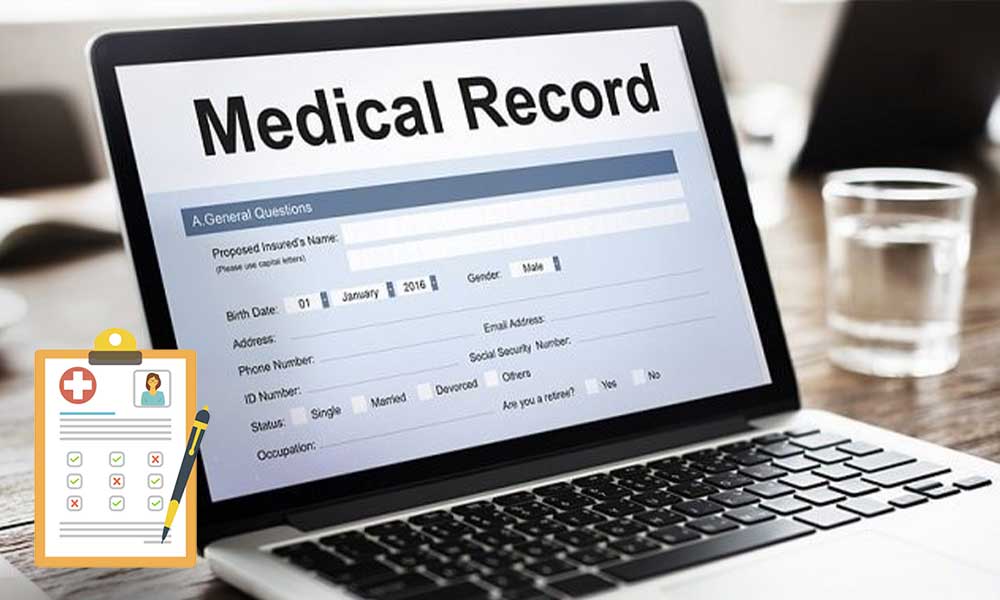How to Get Your Medical Records Even If the Doctor Has Closed the Practice?

We know that getting your medical records can be tricky. It’s not always easy to figure out how to do it.
We’re here to help you with some questions and ideas for how you might ask for them. For professional assistance about how you can get your medical records without any hassles you can check SybridMD they can help you out to find the right physician so you can avoid such kinds of issues in the future.
Here are some key things to keep in mind:
* You have the right to view your medical records, with rare exceptions (we’ll talk more about those later). When patients need a copy of their files they usually call in and ask for access. The receptionist or office staff point them towards what kind of practice their work at – whether it’s telling them how can get copies by writing down requests then sending over paper versions if needed; providing account holders on portals where journal articles are available online too…
As you might expect this varies from place do-place but basically everyone should know who does provide these functions already!
* Every patient has the right to know what is happening with their medical record, and for them to be able to make sure that all necessary care partners are informed of this information.
If you’ve recently moved, or if your doctor has retired or closed the practice, you may be wondering what to do if you need your medical records. The HIPAA Privacy Rule gives patients the right to copies of their medical records, with rare exceptions. This means that you have a few options for getting your records, even if your doctor is no longer practicing.
Here are Some Things You Can Do:
– If you’ve recently moved, contact the healthcare provider that you’re now seeing and ask them to send a copy of your records to their office.
– If your doctor has retired or closed the practice, contact your new doctor’s office and ask them to send a copy of your records to them.
– If you would like to get copies of your medical records that are stored electronically (that is, in an electronic health record), create an account with the patient portal for the practice where your records are stored. This may be done through a website or an app.
– If you don’t want to use the patient portal, ask the office to send you a CD or USB with your records. You can also elect to receive these by e-mail if that is more convenient for you.
We hope this helps point you in the right direction! Getting your medical records is an important step in taking control of your health care. If you have any questions, don’t hesitate to reach out to us.
– The staff at Patient Advocate Foundation.
– You have the right to copies of your medical records, with rare exceptions (we’ll talk more about those later).
-When patients need a copy of their medical records, most start the process by calling their doctor’s office and asking how to get access. The receptionist or office staff point them in the right direction based on what kind of practice they work at – whether it’s instructing them to write down their request and sending it to the office, or if they can set up an account with their patient portal.
You’re Trying to Get Medical Records from Your Closed Doctor’s Office. What Should You Do?
The answer is…
it’s complicated. Because the office closed, they may not have had an EHR.
Also, It depends on why they closed or left. The COVID19 pandemic has had devastating financial consequences on many small, independent, and rural practices, leading to their consequent closure, acquisition, or merger. The closing of an independent practice can happen for any number of reasons: physicians may merge with a large practice or health system; retire; sell out; file for bankruptcy; get sick and die. Patients should know that when a physician leaves the office it is important that they notify all parties involved about their new contact information.
Contact the doctor’s office to ask for a copy of your records, or opt to receive an electronic copy instead. Health information can be sent directly to your new primary care physician or you can transfer the files into an online patient portal that you can access anytime from anywhere. These portals allow you to track your health records from each physician you have been in contact with, including when you saw them, what tests or vaccinations they gave you, and even correspond with them easily.
In 2020, a tweet from @OpenNotes prompted a conversation that led to realizing that patients and families aren’t well informed in these circumstances. In response, we’re launching a campaign called #ClosedDocs to educate people about what happens when their doctor’s office closes.
What Happens to Medical Records When Offices Close? The Law of Physician-Patient Privilege
-HIPAA does not require physicians to retain medical records for any particular period.
-However, if the physician still has those medical records – or has placed them in storage for safekeeping – the HIPAA requirements to produce them when a patient request still apply.
-State laws typically set medical record retention requirements for physicians and may also require the physician to take particular steps (such as notifying a patient) before or upon closure of a practice.
The Laws Differ in Each State, But There are Some Commonalities
For example, California requires that physicians notify patients in advance of the closure of the practice and safeguard records for 10 years.
Medical records must be kept for six years after the most recent entry in the record, according to New York law. When a practice closes, patients are informed.
As part of closing or sale, medical records may not be transferred in Virginia until the provider has attempted to notify patients by mail or publishing notice in a newspaper with a general circulation area. (i.e: The Virginia Mercury).
Under Texas law, physicians must maintain records for seven years following the date of the last treatment. The last treatment is defined as the day on which a patient was treated by a physician and there was no more intervention necessary. Physicians leaving in Texas are required to notify patients.
Even though you don’t have a specific period for when records should be kept, these files will still be accessible under the HIPAA right of access (Patients have the right to access their medical documents under HIPAA). If your practice closes, you may contact the medical board or your state’s medical society for more information about doctor standards. You
Talk to patients about their rights under HIPAA.
HIPAA rules require that providers tell each patient in writing when they’re terminating a relationship with the provider and that they make all records available for transfer or storage.
In addition, after you officially dissolve your practice, all medical records must be kept for at least seven years.
If you feel that your provider didn’t meet their obligations under HIPAA, you can file a complaint with the appropriate agency. Remember, it’s always best to consult an attorney if you have any specific questions or concerns.
In the U.S., there are a number of laws governing how long physicians should retain medical records from patients they have seen in their practice, and for what purpose. We try to cover some of these rules to help you understand your obligations as a physician, but it’s always best to consult an attorney if you have any specific questions or concerns about patient record retention under HIPAA law.










